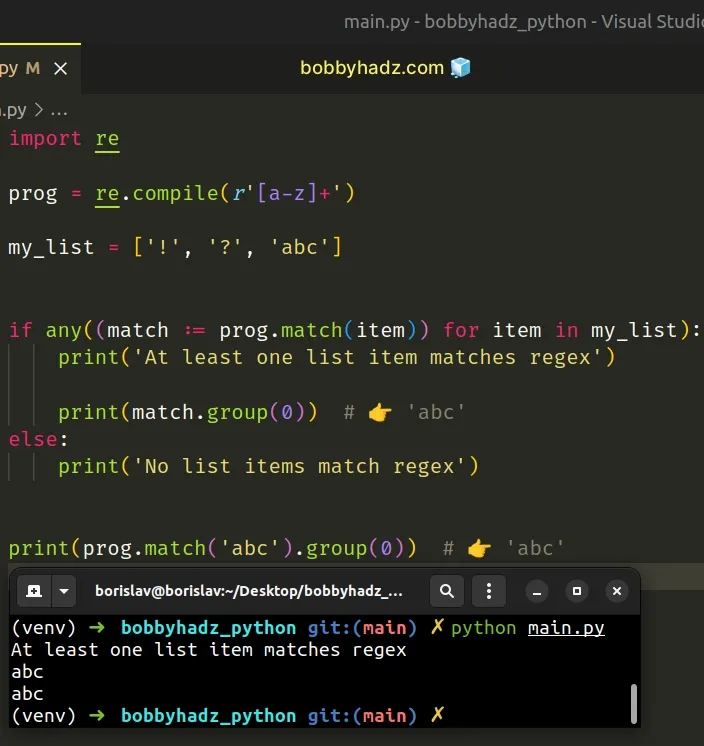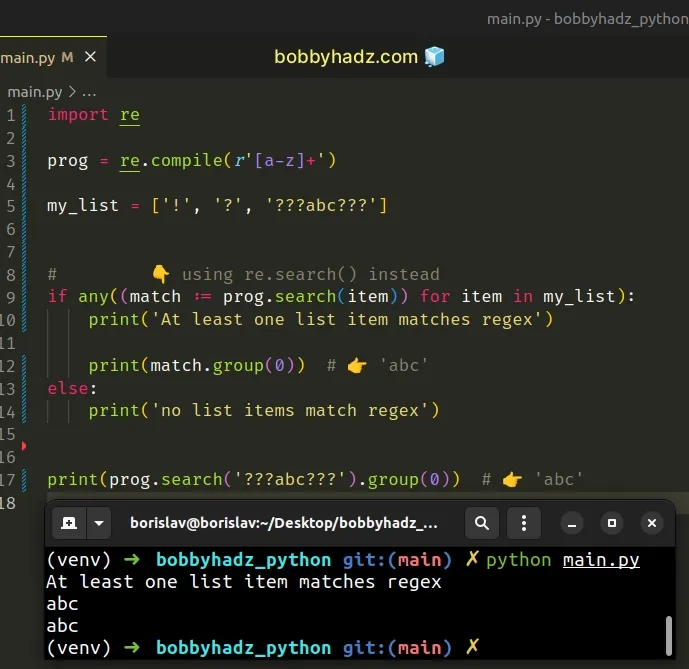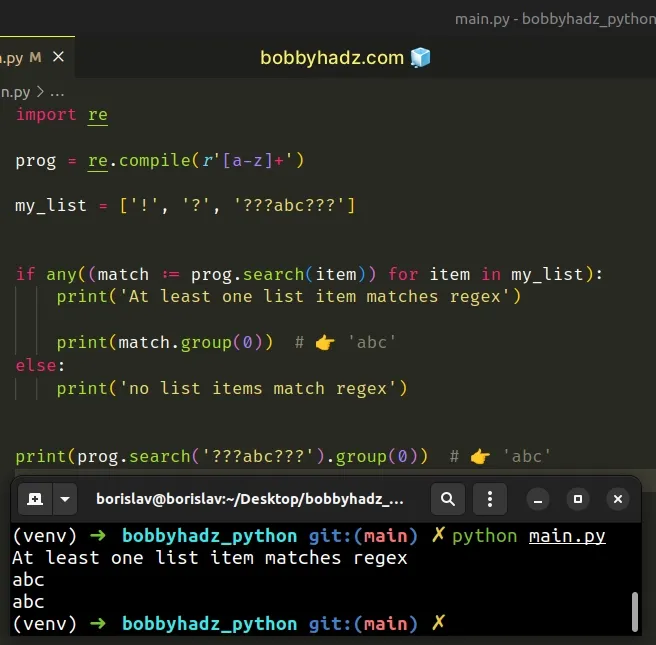Check if any element in a List matches Regex in Python
Last updated: Apr 9, 2024
Reading time·3 min

# Check if any element in a list matches Regex in Python
To check if any element in a list matches a regex:
- Use a generator expression to iterate over the list.
- Use the
re.matchmethod to check if each string in the list matches the regex. - Pass the result to the
any()function.
import re prog = re.compile(r'[a-z]+') my_list = ['!', '?', 'abc'] if any((match := prog.match(item)) for item in my_list): print('At least one list item matches regex') print(match.group(0)) # 👉️ 'abc' else: print('No list items match regex') print(prog.match('abc').group(0)) # 👉️ 'abc'

Note that the re.match() method only matches a regular expression at the beginning of a string.
# Check if any element in a list matches Regex using re.search()
The re.search method checks for a match anywhere in the string.
import re prog = re.compile(r'[a-z]+') my_list = ['!', '?', '???abc???'] # 👇️ using re.search() instead if any((match := prog.search(item)) for item in my_list): print('At least one list item matches regex') print(match.group(0)) # 👉️ 'abc' else: print('no list items match regex') print(prog.search('???abc???').group(0)) # 👉️ 'abc'

We used the re.compile()
method to compile a regular expression pattern into an object, which can be used
for matching using its match() or search() methods.
import re prog = re.compile(r'[a-z]+') print(prog) # 👉️ re.compile('[a-z]+')
This is more efficient than using re.match or re.search directly because it
saves and reuses the regular expression object.
The re.search method looks for the first location in the string where the provided regular expression produces a match.
import re prog = re.compile(r'[a-z]+') my_list = ['!', '?', '???abc???'] if any((match := prog.search(item)) for item in my_list): print('At least one list item matches regex') print(match.group(0)) # 👉️ 'abc' else: print('no list items match regex') print(prog.search('???abc???').group(0)) # 👉️ 'abc'

re.search() method finds a match, it will return a match object, otherwise None is returned.We used a generator expression to iterate over the list.
The := syntax is called
assignment expressions
in Python.
if any((match := prog.search(item)) for item in my_list): print('At least one list item matches regex') print(match.group(0)) # 👉️ 'abc'
Assignment expressions allow us to assign to variables within an expression
using the NAME := expression syntax.
The any function
takes an iterable as an argument and returns True if any element in the
iterable is truthy.
The re.search and re.match methods return a match object if the string
matches the regular expression, otherwise, they return None.
If any element in the list matches the regex, the any() method returns
True and the if block runs.
If the iterable is empty or none of the elements in the iterable are truthy, the
any function returns False.
# Additional Resources
You can learn more about the related topics by checking out the following tutorials:
- Check if all/any elements in List meet condition in Python
- Check if a Value exists in a Two-dimensional List in Python
- Check if an index exists in a List in Python
- Check if multiple Values are in a List in Python
- Check if a String contains an Element from a List in Python
- Check if List contains a String case-insensitive in Python
- Check if String starts with any Element from List in Python
- Check if a value exists in a List of Dictionaries in Python

